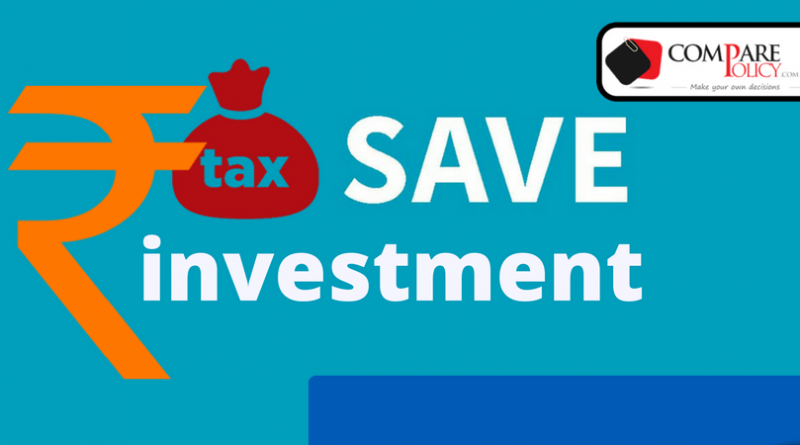Which tax-saving investment best suits your needs?
Tax planning has 2 aspects attached to it. The first aspect talks about the rewarding side of it as you can save some substantial amount for your future along with saving tax on the same. The second aspect can be worrisome in case you have opted for a wrong tax saving instrument without due diligence resulting in your money to be stuck up for 3 to 5 years before you can withdraw it.
Tax saving investments should not be bought at the last moment and ideally should be a thought through the process as per your need and financial objective. The financial goal may be a short term goal, medium term or long term goal. Investments must be done basis, the crucial factors like returns, risk involved,costs , transparency, liquidity and tax benefits.
The ideal mix of all these parameters will make the right tax saving investment for you. Simply buying the investment instrument just because it offers tax benefit is not the right strategy for investing your money.
The tax saving investments can be done ideally as per your financial goals and age of investment:
Table Content
1. Saving though Insurance
Life Insurance: Buying a life insurance cover is the smartest tax saving investment as it offers multiple benefits along with offering tax benefits under section 80 C of Income Tax Act, 1961.The life insurance products offer you safe and moderate returns along with providing the financial protection for the family dependants in case of an unfortunate demise of the policy holder.Life insurance plans are of different kinds. For investment purposes, there are traditional life insurance, investment plans and unit linked insurance plans (Ulip’s). The difference between the two is that under a unit linked insurance plan the policyholder can decide in which fund he/she wants to invest which could be equity fund, debt fund or a hybrid or balanced fund. The investment type is decided by the policyholder. The unit linked plan offers insurance coverage as well along with offering the investment platform to the policyholder.The investment returns are linked to the chosen fund performance over the years.Traditional investment life insurance plans offer guaranteed returns which are moderate in nature. Such plans can be opted by the people who want tax benefits along with guaranteed returns.
Life insurance plans offer you triple benefits of providing insurance cover, adequate returns and tax benefit under a single umbrella.
Health Insurance: With the speeding medical costs in today’s scenario, a health insurance plan can prove to be the best savior. If you are the sole bread earner of the family, then buying a health insurance plan must be a part of your priority list.People usually consider paying the premiums for a health insurance plan as an expense, but ideally it is the best investment you can make for yourself and your loved ones. Life is unpredictable, any ailment, illness, accident or disability may cost your pocket heavily for availing the health care services along with allied expenses. This may hamper your finances to a large extent. A health insurance plan will aid you with the payment of financial expenses for the hospitalization, pre & post hospitalization expenses plus other benefits.Not only this, the premiums paid by you towards your, your spouse or your dependent kids health insurance plans as tax deductible under section 80 D of Income Tax Act,1961 wherein you can claim tax deductions up to Rs 25,000 or Rs 30,000 (if you are a senior citizen). Also, if you are paying premiums for your parents you can claim additional s 30,000 as a tax deduction.
2. Saving through Fixed Return Investment Options
The traditional safe investments like Public Provident Fund (PPF), National Savings Certificate (NSC), 5 year bank deposits , Sukamya Samridhi Yojna (investment scheme for the girl child) are among the common traditional forms of investments offering safe and fixed returns. The maximum tax deduction, the taxpayer can get is up to Rs 1,50,000 under all the investments eligible for tax benefits under section 80 C of Income Tax Act, 1961.It is important to analyze the lock in period under these investments and also the tax implications on the maturity value.Like for PPF, the lock in period is for 6 years and the maturity value is tax free but it is not the case for NSC. So, it is important to link all these factors with your investment goals to enjoy the benefits of your investments
3. Saving through equity Linked saving schemes (ELSS)
Such investments are equity based investments which invests more than 65% of the investment amount in equities. There are just three instruments that have an equity disclosure: the NPS, the Rajiv Gandhi Equity Savings Scheme (RGESS) and equity-linked savings scheme (ELSS). Such investments have a shorter lock in period of 3 years providing highest returns. But of course high returns exposes you to the higher risk of investment also. The maximum tax deduction, the taxpayer can get is up to Rs 1,50,000 under all the investments eligible for tax benefits under section 80 C of Income Tax Act, 1961.
Check out this Articles: Investment Plans With The Highest Return Rates
Lastly, it is important for you to understand your investment goals and then choose the tax saving investment instrument among the above mentioned ones. However, insurance should be on your priority as there is nothing more important than offering a financial back up to your family.

